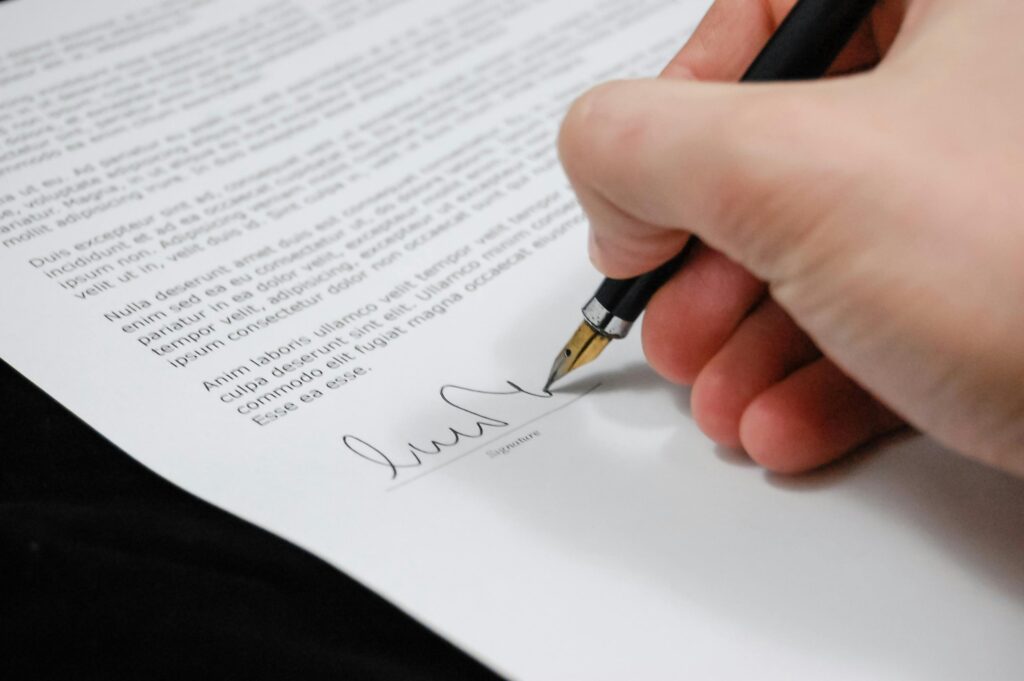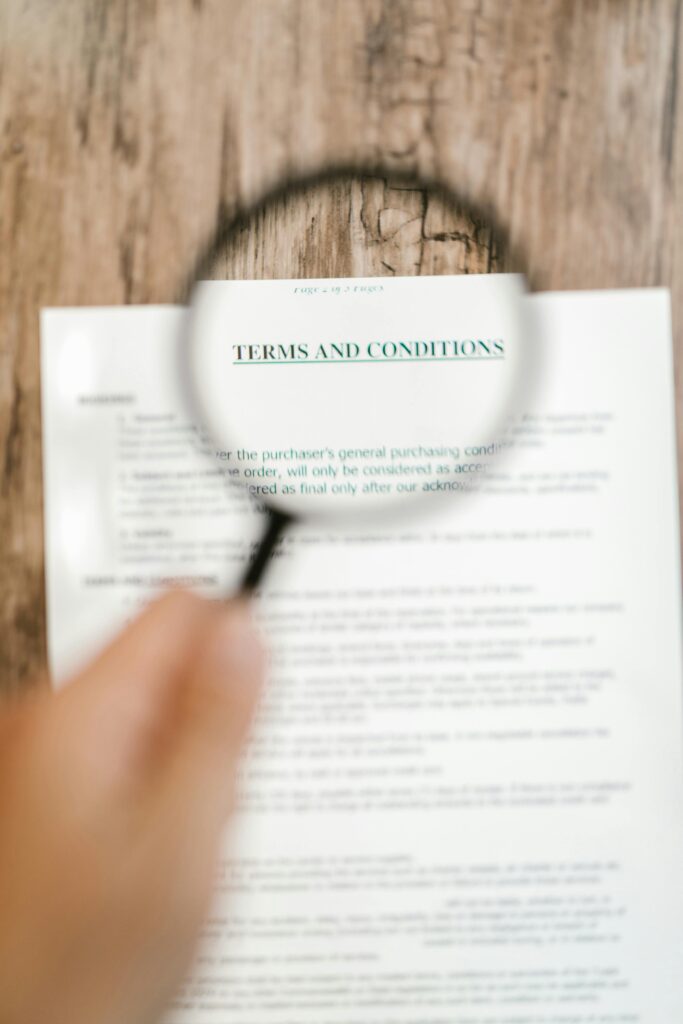Owning a villa in Koh Samui offers not only a beautiful place to call home but also a lucrative opportunity for generating rental income. Whether you’re renting out to long-term tenants or short-term vacationers, there are several legal obligations you must meet to ensure your rental business runs smoothly. Ignoring these requirements can lead to hefty fines, legal challenges, or even the shutdown of your rental activities.

Understanding the legal framework, including obligations to tenants and local authorities, is crucial for protecting both your property and your investment. In this article, we’ll explore the most important responsibilities villa owners should be aware of when renting out their property in Koh Samui, helping you avoid common pitfalls and maintain a successful rental business.
Complying with Local Rental Laws
One of the most important responsibilities of renting out a villa in Koh Samui is ensuring that you follow all local rental laws. Whether you are renting your property to tourists for short stays or offering it as a long-term rental, these laws apply to all rental agreements and are crucial to maintaining a legitimate and successful rental operation.
Registration with the Local Authorities
As a villa owner in Koh Samui, you are required to register your property with the local authorities if you intend to rent it out, even for short-term stays. If your villa is rented for periods shorter than 30 days, it may be classified under hotel licensing regulations, and you will need a specific license to operate legally. Failing to obtain this license could lead to significant fines or penalties, particularly as local authorities have begun to crack down on unlicensed rentals targeting tourists.
For long-term rentals, if the lease period exceeds three years, it is mandatory to register the lease with the Land Department. Registering these contracts ensures they are legally binding and recognized by Thai law. Skipping this step can lead to potential legal disputes, and your rental agreement could be invalidated in court.
Reporting Foreign Tenants
Thailand’s Immigration Act includes a lesser-known but critical requirement for property owners: the obligation to report the stay of foreign tenants to immigration authorities. Section 38 of the Immigration Act mandates that villa owners must notify immigration within 24 hours of the arrival of a foreign tenant. This applies whether you are hosting tourists on short stays or renting long-term to expatriates.
The reporting process is straightforward and can be done online or through your local immigration office. However, failure to comply with this requirement can result in fines. Staying on top of this legal obligation ensures that your rental business runs smoothly without running afoul of the law.
Drafting and Managing Rental Agreements
A well-constructed rental agreement is essential for the smooth operation of a rental villa in Koh Samui. This legal document serves as a binding contract between the villa owner and tenants, clearly outlining the rights and responsibilities of both parties. A strong lease not only minimizes the potential for disputes but also ensures that both parties are aware of their obligations, creating a more transparent and harmonious rental relationship.
Key Elements to Include in the Lease
When drafting a rental agreement for your villa, it is crucial to include several key components to protect both the owner and the tenant:
• Duration of the lease: Clearly define the length of the rental period, whether it’s for a short-term vacation stay or a long-term rental. If renewal options are available, specify the terms under which the lease can be extended.
• Rent payment terms: Detail the amount of rent due, the payment schedule, and acceptable methods of payment. Be clear about late fees or penalties to avoid any future confusion.
• Maintenance responsibilities: Specify who is responsible for maintaining the property, from basic repairs to major renovations. This can prevent disputes over unexpected repair costs.
• Security deposit: Indicate the amount of the security deposit, how it will be held, and the conditions under which it will be returned to the tenant.
• Tenant responsibilities: Include rules about property use, noise restrictions, and any prohibitions, such as subletting the villa. Setting clear boundaries helps maintain the property’s condition and the neighborhood’s peace.
A thorough lease agreement provides legal protection and sets the tone for a professional and respectful relationship with tenants.

Enforcing Tenant Rights and Responsibilities
Thai law grants specific rights and obligations to both landlords and tenants, and as a villa owner in Koh Samui, it’s vital to understand these regulations to avoid potential disputes. For instance, landlords have the right to timely rent payments and for the tenant to maintain the property’s condition. However, tenants are entitled to certain rights, including privacy and the peaceful enjoyment of the property.
One key rule is that landlords must not enter the property without giving prior notice to the tenant, except in emergencies. Providing advance notice for inspections or maintenance fosters trust and transparency. Open communication channels help avoid misunderstandings and ensure that both the owner’s and tenant’s rights are respected throughout the rental period.
Maintaining a balance between protecting your property and respecting tenant privacy is crucial to long-term success in managing a villa.
Tax Obligations for Villa Owners Renting Out
When renting out a villa in Koh Samui, it’s crucial to understand and fulfill the tax obligations that come with generating rental income. Both residents and non-residents of Thailand are required to declare and pay taxes on any income derived from tenants. Ignoring these obligations can result in penalties, legal issues, and fines.
Income Tax on Rental Income
The rental income you earn from your villa is subject to income tax, which can be either personal income tax or corporate tax, depending on the ownership structure of the property.
• Personal income tax applies to individuals renting out their villas. The income is taxed progressively, starting at a rate of 5%, with higher rates applied based on the total income you earn throughout the year. The more you earn, the higher the percentage you will need to pay in taxes. Properly declaring your rental income and paying the required tax is essential for remaining compliant with Thai tax laws and avoiding potential legal problems.
• Corporate tax applies if the villa is owned by a company. In this case, rental income is subject to a flat corporate tax rate of 20%. Companies that rent out multiple villas or large estates typically fall into this category. It’s advisable to consult a tax advisor familiar with Thai real estate to ensure that your income is correctly declared and that all tax payments are made on time.
Property Taxes
In addition to income tax on rental revenue, villa owners are also required to pay property taxes. In 2020, Thailand introduced the Land and Building Tax, which applies to residential properties, including villas rented to tenants. The tax rate for residential properties starts at 0.02% of the government-assessed value, with higher rates applying to more valuable properties.
Owners should ensure they stay up to date on property tax payments, as neglecting these obligations can result in fines or other legal complications. Keeping on top of property tax payments is critical for maintaining compliance with Thai regulations and ensuring your investment remains profitable.
By understanding and adhering to these tax obligations, villa owners can operate smoothly, avoid unnecessary legal issues, and protect their rental income from penalties or disruptions.

Health and Safety Standards for Tenants
Providing a safe, comfortable, and habitable environment for tenants is both a legal requirement and a moral responsibility for villa owners in Koh Samui. Ensuring that your property adheres to the necessary health and safety standards is key to protecting your tenants and reducing your liability as a landlord.
Ensuring Structural Safety
One of the most important obligations for villa owners is to ensure that the property is structurally sound and safe for tenants. This includes regular inspections to check for potential hazards, such as faulty wiring, plumbing issues, or any signs of structural damage like cracks in the walls or foundation problems.
The property should comply with local building codes and construction standards to prevent accidents. Failing to maintain a safe structure could lead to legal disputes or liability claims if tenants are injured or suffer damage to their belongings due to unsafe living conditions. By taking preventative action and addressing any structural issues promptly, villa owners can avoid costly lawsuits and protect their investment.
Fire Safety and Emergency Preparedness
Another crucial aspect of tenant safety is ensuring the villa is prepared for emergencies, especially fire hazards. Owners must equip their properties with essential fire safety equipment, including fire extinguishers, smoke alarms, and clearly marked fire exits. These should be regularly maintained to ensure they function correctly.
Additionally, villa owners should develop an emergency preparedness plan. Providing tenants with clear instructions for evacuations, a list of emergency contacts, and directions to the nearest fire station or hospital can make a significant difference in the event of an emergency. Implementing these safety measures not only protects the well-being of your tenants but also reduces the risk of liability should an unfortunate incident occur.
Heveatecture’s Commitment to Sustainable Villa Management
When managing a villa in Koh Samui, ensuring compliance with local regulations and maintaining the highest health and safety standards is crucial—not just for legal reasons but also to enhance tenant satisfaction and long-term success. This is where Heveatecture stands out, offering more than just architecture; they provide a holistic approach to villa design and management, with a keen focus on sustainability, safety, and compliance with all local laws.
Sustainable Design and Tenant Safety
At Heveatecture, the importance of safety is integrated into every aspect of villa design. From the initial planning stages to the final construction, Heveatecture emphasizes eco-friendly materials that enhance both the environmental footprint and the structural durability of the villa. This approach ensures that villas are not only visually stunning but also comply with the highest safety standards, protecting both owners and tenants.
By choosing Heveatecture, villa owners in Koh Samui can benefit from innovative designs that incorporate sustainable living features like natural ventilation, solar energy systems, and rainwater harvesting, which are not only in line with local environmental regulations but also appeal to eco-conscious tenants. These features can help you stand out in the rental market while ensuring your property meets the expectations of today’s environmentally aware tenants.
Tailored Solutions for Legal Compliance
Understanding the complexities of property laws and rental obligations in Thailand can be challenging, especially for foreign villa owners. Heveatecture goes beyond design to offer strategic support in navigating these legal waters. Their team works closely with local experts to ensure that each villa is not only compliant with local zoning regulations but also meets all necessary requirements for rental licenses and property management.
Heveatecture’s commitment to sustainability, combined with their focus on practical solutions for villa management, makes them the ideal partner for those looking to create and manage luxurious, environmentally responsible properties in Koh Samui. With their help, owners can not only meet their legal obligations but also create a safe, stylish, and desirable space for tenants that sets a new standard for tropical living.

In this way, Heveatecture continues to bridge the gap between architectural innovation and responsible property management, offering peace of mind to villa owners and exceptional living environments for tenants.
Conclusion
Renting out a villa in Koh Samui can be highly profitable, but it comes with a set of legal obligations that every owner must understand and respect. From ensuring compliance with local rental laws and reporting foreign tenants to drafting clear rental agreements and maintaining health and safety standards, these responsibilities are vital for protecting your property, your tenants, and your overall investment.
By prioritizing tenant safety through structural soundness and emergency preparedness, meeting your tax obligations, and staying compliant with local regulations, you can create a smooth and successful rental operation. Doing so not only guarantees long-term profitability but also strengthens your reputation as a responsible villa owner.
10 FAQ About Legal Obligations for Villa Owners Renting Out in Koh Samui
Yes, villa owners in Koh Samui must register their property with local authorities if they are renting it out, especially for short-term stays. If you plan to rent out your villa for less than 30 days at a time, Thai law considers this a commercial activity, and you may need a hotel license. For long-term rentals, while a license is not required, rental agreements lasting more than three years must be registered with the Land Department.
As a villa owner renting out property, you are responsible for paying income tax on your rental earnings. If you are an individual, you will be taxed progressively, starting at 5% based on the total income earned. If your villa is owned by a company, you will need to pay the 20% corporate tax rate. Additionally, you’ll be responsible for the annual Land and Building Tax, which applies to all properties, including rental homes.
Yes, under Section 38 of the Immigration Act, villa owners must report any foreign tenants to the local immigration office within 24 hours of their arrival. This law applies to both short-term and long-term rentals. You can complete this report online or in person, and failure to comply can result in fines.
A rental agreement for your villa should include essential details such as the duration of the lease, rent payment terms, maintenance responsibilities, security deposit conditions, and rules regarding property use. For long-term rentals, it’s crucial to have a legally binding agreement to avoid future disputes and to protect your rights as the owner.
Yes, short-term rentals (stays of less than 30 days) are subject to different regulations. You may need to apply for a hotel license if you are offering frequent short-term rentals. Long-term leases typically do not require such a license, but contracts longer than three years must be registered with the Land Department to be enforceable in court.
Non-resident villa owners must declare their rental income and are taxed in Thailand on a progressive income tax scale, starting at 5%. Non-compliance or failure to declare rental income can result in penalties. If your property is owned by a company, you will be subject to a flat 20% corporate tax on rental earnings.
Villa owners must ensure that their property is safe for tenants. This includes adhering to building safety regulations, ensuring structural integrity, and maintaining fire safety standards such as fire extinguishers and smoke alarms. Regular maintenance and compliance with local building codes are essential to avoid liability in the event of accidents.
Yes, if you rent out your villa for short-term stays (less than 30 days) without obtaining the required hotel license, you can be fined by the local authorities. Renting out a property without the proper licenses or permits is illegal and can result in fines, legal action, or closure of your rental business.
Yes, liability insurance is highly recommended for villa owners, especially if you rent out your property. This insurance covers you in case a tenant or guest is injured while staying at your villa or if there is accidental damage caused to a tenant’s belongings. Liability coverage helps protect you from costly lawsuits and potential compensation claims.
If a tenant fails to pay rent or causes damage to your villa, your rental agreement will serve as the legal basis for resolving disputes. In cases of non-payment or significant damage, you may need to take legal action, which can be time-consuming. Having a well-drafted rental agreement and collecting a security deposit helps mitigate such risks. Consulting a legal expert can ensure you follow the correct procedures in handling tenant issues.
